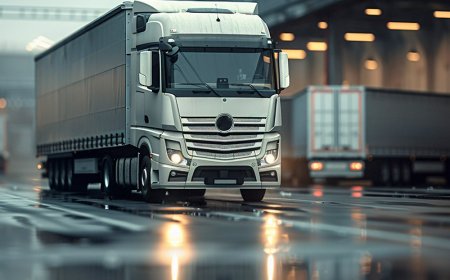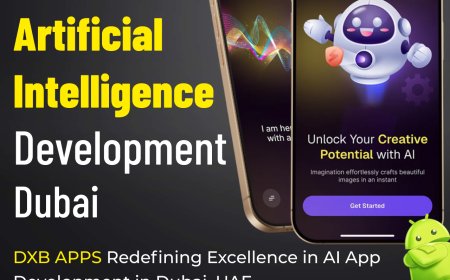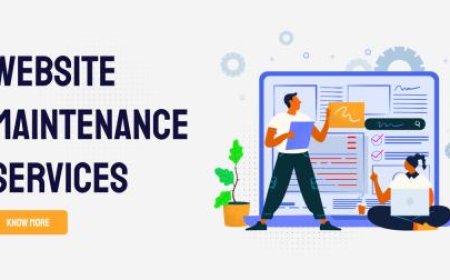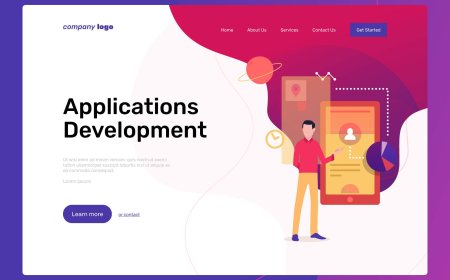Why Custom AI Development is the Future of Business Innovation
Custom AI development refers to the process of building artificial intelligence solutions specifically tailored to the unique needs of a business.
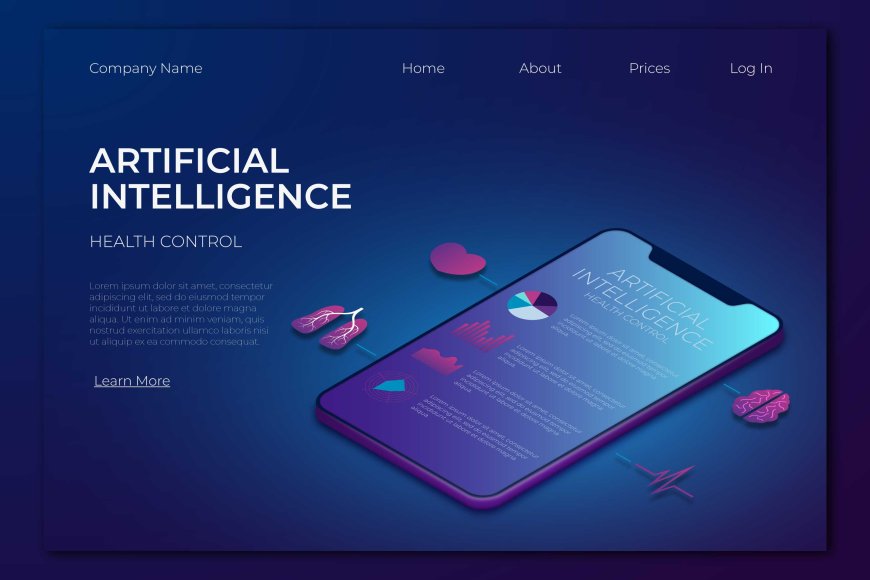
Introduction to Custom AI Development
What Is Custom AI Development?
Custom AI development refers to the process of building artificial intelligence solutions specifically tailored to the unique needs of a business. Unlike generic, pre-built AI tools, custom solutions are designed from the ground up using a companys data, business objectives, industry requirements, and technical infrastructure. Its not about finding a tool and bending your processes to fitits about creating a solution that aligns seamlessly with your strategic goals.
Custom AI may include:
- Personalized recommendation engines
- AI-powered chatbots with industry-specific knowledge
- Predictive maintenance tools for manufacturing
- Fraud detection models tailored to financial data patterns
- Intelligent process automation built on custom workflows
This approach ensures that the AI solution not only solves the problem at hand but also evolves with the business, provides better insights, and delivers a greater return on investment (ROI) over time.
How It Differs From Off-the-Shelf AI Solutions
Off-the-shelf AI solutions are pre-packaged tools designed to work for a broad audience. While they offer quick implementation and are generally cost-effective upfront, they come with limitations. You typically get a rigid framework, limited customization, and generic models trained on public datasets that may not align with your specific needs.
Heres how they compare:
FeatureCustom AI DevelopmentOff-the-Shelf AI
Customization Fully tailored Limited or none
Scalability Built to grow with your business. Often limited to preset tiers.
Integration Deep integration into systems may require workarounds
Data Ownership: You own and control the data. Often reliant on the vendors data
Performance Optimized for your exact use case, General performance
Ongoing Support: Fully managed and upgradeable. May have limited support options
In short, custom AI gives you control, precision, and long-term value, while off-the-shelf tools offer quick fixes with compromises. For businesses looking to innovate, differentiate, and compete at scale, custom AI is the smarter path forward.
The Rise of AI in Business Innovation
AIs Role in Business Transformation
AI is no longer just a buzzwordit's the engine behind some of the most transformative changes in modern business. From streamlining operations to creating entirely new business models, AI enables smarter decision-making, better customer experiences, and optimized performance across departments.
Heres what AI is transforming in 2025:
- Operations: Automating repetitive tasks, reducing manual errors
- Marketing: Predictive analytics, behavior modeling, content generation
- Customer Service: AI chatbots, sentiment analysis, personalized support
- Product Development: Demand forecasting, feature customization
- Finance: Credit risk scoring, fraud detection, AI-powered audits
By unlocking value in previously untapped data, AI is making businesses faster, leaner, and more intelligent. Companies that leverage AI effectively can not only reduce costs but also drive innovation and create sustainable growth.
Examples of AI-Driven Innovation Across Industries
Here are some real-world examples of how businesses across various sectors are using custom AI to innovate:
- Healthcare: AI algorithms now assist radiologists in diagnosing diseases more accurately and faster. Hospitals use AI to predict patient deterioration and improve care outcomes.
- Finance: AI is helping banks detect anomalies in transactions to fight fraud. Insurance companies are using predictive models for personalized premiums.
- Retail: Brands like Amazon and Walmart use AI to forecast demand, personalize offers, and optimize supply chains.
- Agriculture: AI-powered drones and sensors help monitor crop health and suggest optimal irrigation schedules.
- Energy: Utilities deploy AI to balance energy loads, predict outages, and improve energy efficiency in grids.
Custom AI makes these innovations possible by addressing the specific challenges and data environments of each business. Its not about adopting technologyits about transforming strategy.
Benefits of Custom AI Development
Tailored Solutions for Unique Business Needs
Every business is unique, with specific workflows, data structures, goals, and challenges. This is where custom AI development shinesit allows you to create solutions that are purpose-built for your operations, not generic guesses. Instead of adapting your business to fit a tool, the tool adapts to fit you.
Custom AI can handle niche datasets, learn from proprietary processes, and produce outputs aligned with your KPIs. Whether its a legal firm needing a specialized document classifier or a logistics provider requiring a route optimization algorithm, tailor-made AI means precise, relevant results. This level of customization ensures better efficiency, usability, and return on investment.
Competitive Edge and Market Differentiation
In saturated markets, differentiation is everything. Custom AI allows businesses to build features, services, and capabilities that competitors simply dont have. This can translate into smarter products, faster service, better customer insights, or more responsive systems.
Imagine a custom recommendation engine that doesnt just analyze purchase history but also incorporates mood detection from customer support chatsthats innovation. Off-the-shelf tools cant provide this level of strategic advantage. The ability to offer unique, AI-powered services makes you not just competitive but memorable.
Better Integration With Existing Infrastructure
Custom AI fits neatly into your existing ecosystem. Whether you run legacy systems, hybrid cloud environments, or complex ERP/CRM software, a tailor-made solution ensures seamless interoperability.
This minimizes disruption, reduces implementation time, and avoids data silos. Plus, your teams dont have to learn an entirely new systemthey work within a familiar environment enhanced by AI. The result is smoother operations and quicker adoption across departments.
Improved Scalability and Flexibility
As your business grows, your AI systems should evolve with you. Custom solutions are designed with scalability in mind. You can start smallmaybe automating one workflowand expand across departments, data types, or use cases as needed.
This flexibility extends to performance tuning, model retraining, and feature updates. Youre not locked into a vendors roadmap or architecture. You control the pace and direction of your AI strategy, adapting it as your goals shift or new opportunities arise.
Core Components of a Custom AI Solution
Data Strategy and Engineering
Data is the fuel of AI. Custom AI development starts with defining a data strategyhow you collect, store, clean, and process the information your AI will learn from.
A top-tier custom AI solution will:
- Integrate multiple data sources (structured and unstructured)
- Handle real-time and batch processing
- Ensure data quality through cleaning and validation
- Use ETL pipelines for efficient data flow
Security and compliance are also baked in, ensuring your data is not only usable but also protected.
Model Design and Optimization
Unlike one-size-fits-all AI, custom models are trained on your actual business data and aligned with your goals. Developers design the model architecture, select the right algorithms (e.g., classification, regression, NLP, or image processing), and tune hyperparameters for optimal results.
Custom models are:
- Trained specifically for your domain
- Continuously improved through feedback loops
- Validated with cross-validation and A/B testing
- Monitored for drift and decay over time
This design-first approach ensures the AI performs precisely where it matters most.
Deployment and Monitoring
Deploying AI is more than just pressing launch. It requires careful orchestration:
- Cloud or on-prem deployment
- Real-time or batch processing
- Containerization (Docker, Kubernetes)
- CI/CD pipelines for seamless updates
Once deployed, continuous monitoring is crucial. Metrics like accuracy, latency, and user feedback help refine the model. Drift detection tools and retraining workflows ensure your AI doesnt become stale or inaccurate.
Ethical and Transparent AI Design
Ethical AI isnt optionalits essential. Custom AI projects should include features that ensure fairness, accountability, and transparency. This includes:
- Model explainability (e.g., SHAP, LIME)
- Bias audits across demographic groups
- Privacy-first data usage policies
- Regulatory compliance (GDPR, HIPAA, etc.)
Building responsible AI protects your users, your brand, and your business.
Challenges of Off-the-Shelf AI Tools
Limited Customization and Scalability
Off-the-shelf AI tools are often designed with a one-size-fits-all mentality. While this makes them easy to deploy, it severely limits their adaptability. Businesses with unique workflows, niche data, or industry-specific requirements quickly find that these tools cant keep up.
Such tools may lack:
- Support for industry jargon or specialized terminology
- Custom model training capabilities
- Integration options with proprietary software
Even worse, they rarely scale efficiently. You may outgrow the tool as your data increases, your customer base expands, or your operational complexity evolves. Thats when businesses realize that they need custom AI not just to grow, but to survive.
Incompatibility With Legacy Systems
Most enterprises have legacy systems in placeERPs, CRMs, internal dashboardsand replacing them is expensive and risky. Off-the-shelf AI tools often struggle to connect with these systems, requiring expensive middleware or manual workarounds.
This leads to:
- Data silos
- Inconsistent performance
- Broken automation chains
- Higher IT overhead
Custom AI, on the other hand, is built to mesh seamlessly with your current infrastructure, avoiding the cost and chaos of complete tech overhauls.
Hidden Costs and Vendor Lock-in
Off-the-shelf tools may seem cost-effective at first glance, but many come with hidden fees:
- High charges for premium features
- Usage-based pricing models
- Costly integrations and APIs
- Limited control over your data
Worse, many platforms create vendor lock-inyou become so dependent on their ecosystem that switching providers becomes expensive and technically difficult. Custom AI development gives you full control over your data, models, and tech stack, freeing your business from long-term traps.
Industry Use Cases of Custom AI Development
Healthcare
In healthcare, precision and privacy are paramount. Custom AI is used for:
- Medical imaging analysis (e.g., tumor detection in X-rays)
- Predictive healthcare (e.g., identifying high-risk patients)
- Drug discovery through molecular modeling
- Chatbots for 24/7 patient engagement
Because medical datasets are often unique to each provider or region, off-the-shelf tools fall short. Custom AI offers personalized insights while ensuring HIPAA compliance.
Finance
Financial institutions rely on custom AI for:
- Fraud detection using behavioral modeling
- Loan risk analysis with domain-specific features
- AI-based trading algorithms
- Customer service bots trained on financial queries
Custom solutions help meet strict regulatory standards and handle proprietary data formats, making them indispensable in finance.
Retail
Retailers are leveraging custom AI for:
- Personalized product recommendations
- Dynamic pricing strategies
- Inventory and demand forecasting
- Customer sentiment analysis
Unlike off-the-shelf solutions, custom models can account for seasonality, regional preferences, and historical sales patterns, turning browsers into buyers.
Manufacturing
In manufacturing, downtime equals lost revenue. Custom AI enables:
- Predictive maintenance
- Quality control with computer vision
- Production optimization
- Supply chain automation
Tailored AI systems can work with factory-specific sensors and IoT devices, providing accurate, real-time insights that generic tools cant replicate.
Logistics and Supply Chain
Logistics firms use custom AI to:
- Optimize delivery routes
- Predict shipment delays
- Automate warehouse operations
- Balance supply and demand
Each logistics network is different. Only custom-built AI can account for variables like traffic data, driver behavior, weather, and vendor schedules in real time.
How to Approach Custom AI Development
Building a Cross-Functional Team
Custom AI projects require collaboration across departments. The ideal team includes:
- Data scientists and ML engineers for technical development
- Domain experts who understand industry-specific needs
- Product managers for strategic alignment
- IT and DevOps for infrastructure support
This cross-functional approach ensures the solution is technically sound, strategically aligned, and ready for real-world deployment.
Partnering With the Right AI Development Firm
If your team lacks in-house AI expertise, partner with an agency that specializes in custom AI. Look for:
- A strong portfolio of successful deployments
- Experience in your industry
- Transparent processes and timelines
- Post-launch support and MLOps capabilities
A reliable partner will act more like an extension of your team, guiding you from ideation to deployment and beyond.
Planning for Long-Term ROI
Custom AI is an investmentbut one that pays off handsomely. To ensure long-term ROI:
- Start with a clear problem statement
- Define measurable KPIs (e.g., cost savings, time reduction, accuracy)
- Roll out in phases (pilot, iterate, scale)
- Plan for model maintenance and retraining
The goal isnt just to deploy AIits to deliver lasting value.
Key Technologies Powering Custom AI
Machine Learning and Deep Learning
ML and DL form the backbone of custom AI. Whether its decision trees for classification or neural networks for pattern recognition, these technologies are trained specifically on your business data, making them highly accurate and relevant.
Natural Language Processing (NLP)
NLP powers chatbots, search engines, sentiment analysis, and document summarization. Custom NLP models understand your customers, documents, and queries in your business language, improving engagement and efficiency.
Computer Vision
From facial recognition in security systems to visual inspections in factories, computer vision is a game-changer. Custom models can be trained to detect anomalies or measure quality based on your specific visual standards.
Edge AI and Cloud Integration
Modern AI solutions often run on hybrid infrastructures:
- Edge AI processes data on local devices for low-latency applications (e.g., autonomous vehicles)
- Cloud AI offers massive compute power and flexibility
Custom development ensures optimal distribution between edge and cloud based on performance needs and cost efficiency.
Future Trends in Custom AI
AI-Driven Automation and Personalization
In 2025 and beyond, AI is pushing deeper into intelligent automation and hyper-personalization. Businesses are moving away from rule-based systems and embracing AI that learns from behavior, adapts in real time, and personalizes experiences at scale.
Custom AI will lead the charge in:
- Automating complex workflows across departments
- Delivering individualized user journeys in apps and websites
- Adjusting marketing campaigns dynamically based on customer actions
- Managing smart inventories with AI predictions
Whether its in e-commerce, banking, or SaaS, personalization and automation through custom AI are redefining customer experience and operational efficiency.
Generative AI for Product Development
Generative AI is revolutionizing the way products, content, and experiences are created. From GPT-based chatbots to AI-powered design assistants and code generators, custom generative AI solutions are enabling businesses to innovate faster and smarter.
Emerging use cases include:
- Product prototyping with AI-generated designs
- Custom content creation for blogs, ads, and SEO
- AI-driven UX/UI wireframes
- Automated report writing and documentation
By integrating generative AI into internal tools or customer-facing platforms, businesses can reduce development cycles and unlock new levels of creativity.
Self-Learning and Adaptive AI Models
Static models are outadaptive AI is in. These self-learning models continuously evolve by retraining on new data, user interactions, and business metrics. Custom AI in the future will:
- Detect shifts in user behavior
- Recalibrate without manual intervention
- Improve accuracy over time
- Reduce maintenance burden
Industries such as fintech, cybersecurity, and health tech are already experimenting with adaptive models to stay ahead of threats and deliver real-time intelligence. For companies seeking long-term AI value, adaptability is becoming just as important as accuracy.
Conclusion
Custom AI development is no longer a luxuryit's a strategic imperative for businesses that want to lead, innovate, and thrive in an increasingly intelligent world. From automating operations and personalizing customer experiences to powering entirely new products and services, custom AI puts the control, performance, and scalability in your hands.
While off-the-shelf tools may offer a quick fix, they simply cant compete with the precision, flexibility, and competitive edge that custom solutions deliver. Whether you're a startup building your first AI feature or an enterprise transforming your entire tech stack, custom AI is the smartest way forward.
The future belongs to businesses that don't just adopt AI, but shape it.
FAQs
Is custom AI more expensive than off-the-shelf solutions?
Initially, yes. Custom AI requires investment in design, development, and deployment. However, it often results in lower long-term costs, better ROI, and fewer limitations compared to off-the-shelf tools that may come with hidden fees, rigid structures, or poor fit for your business.
How long does it take to develop a custom AI solution?
Development timelines vary depending on complexity. A basic prototype might take 48 weeks, while a fully integrated, enterprise-level AI system could take 36 months. Planning, testing, and deployment time must also be factored in.
What industries benefit most from custom AI?
Industries with complex data, regulatory constraints, or unique customer demands gain the most from custom AI. These include healthcare, finance, retail, logistics, manufacturing, and education.
Can small businesses afford custom AI development?
Yesespecially today. With open-source frameworks, cloud computing, and AI-as-a-service models, custom AI is becoming more accessible. Many firms offer scalable solutions tailored to smaller budgets and project scopes.
What are the risks of using generic AI tools?
Generic tools may lead to:
- Inaccurate predictions due to poor data alignment
- Security risks and compliance issues
- Poor user experiences from one-size-fits-all models
- Vendor lock-in and limited control
- High costs from forced upgrades and licensing
Custom AI mitigates these risks by delivering solutions that are precise, secure, and built for your success.































